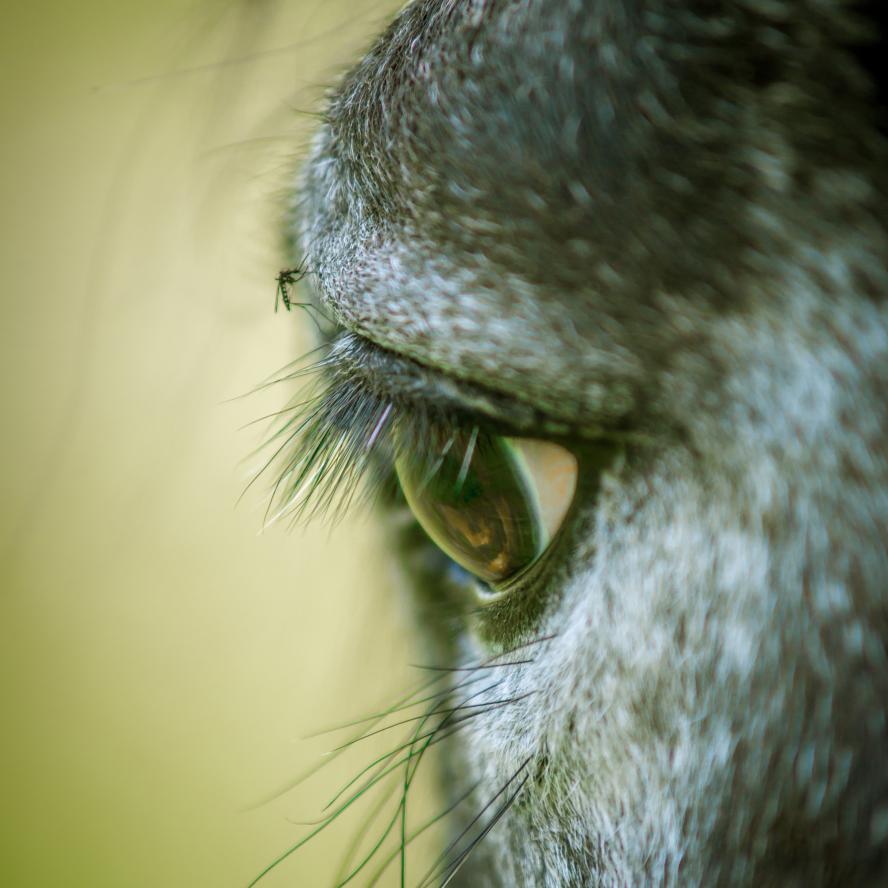-
About
- Leadership & Faculty
- News & Events
-
Admissions
-
Academics
- Graduate
- Advanced Clinical Training
- Continuing Education
- Academic Departments
- Academic Offices
- Simulation Experiences
-
Student Life
- Offices
-
Research
-
- Transformative Research
- Centers & Shared Resources
-
-
Hospitals & Clinics
- Emergency Care
- Hospital Services
-
Community Outreach
- Volunteer
Reduce Mosquito Exposure on the Farm
A viral illness primarily transmitted by mosquitoes, Eastern equine encephalitis (EEE) is fatal in more than 90% of infected horses.

Aviral illness primarily transmitted by mosquitoes, Eastern equine encephalitis (EEE) is fatal in more than 90% of infected horses. There’s no specific antiviral treatment available, so appropriate vaccination and other protective measures are urgently needed to keep horses safe. A serious risk of EEE remains in our area until the first hard frosts come.
Although vaccination is the first line of defense against EEE in horses, it is not a fail-safe. Vaccination failures have occurred even in the face of proper administration and timing of vaccine. Therefore, it’s also critical to avoid exposing your horses to mosquitos and other blood-sucking pests that can transmit EEE.
Unfortunately, farms often are especially vulnerable to mosquitoes because the areas around watering troughs stay muddy and damp—making for ideal mosquito-breeding grounds—while manure mixed with standing water offers the biting insects nutrients.
Follow these tips to manage mosquitoes on the farm:*
- Keep all areas dry. Eliminate flooding by improving drainage in low-lying areas.
- Clean water troughs.
- Keep pastures mowed and weeds down to reduce nesting sites for mosquitoes.
- If you have ponds, bacteria such as B thuringiensis can help control mosquito larvae. There are also oils that can be used for controlling pupae if no larval control has been done (but this is a less environmentally friendly approach). Ask your state public health officials for more advice about these methods.
- Keep horses inside from dusk to dawn and make sure you have good screens on all windows and doors.
- If your horse cannot come inside, use mosquito repellent made for horses.
*Sources: Cummings School of Veterinary Medicine Professor Sam Telford and “Managing Mosquitoes on the Farm” by the Department of Entomology at University of California, Davis